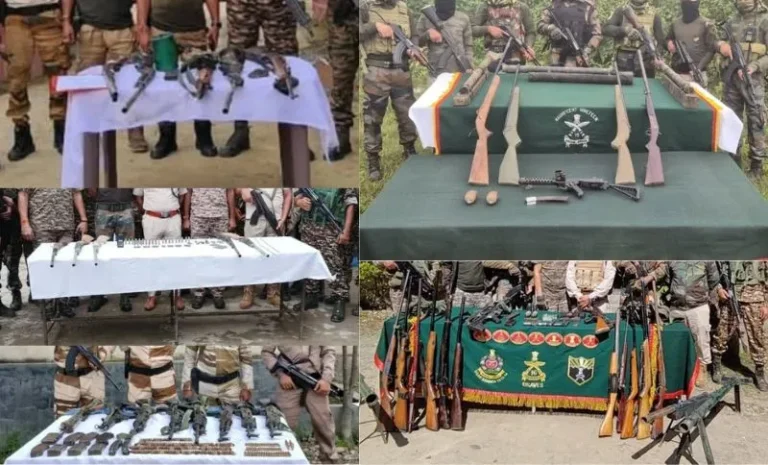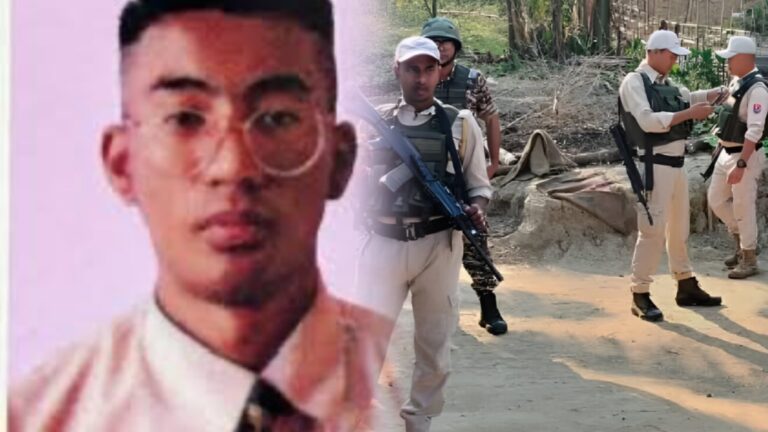COCOMI Criticizes BSF Over Woman’s Killing in Manipur: Exploring Accountability and Security Concerns
Introduction: Tensions Rising in Manipur
The recent incident involving the killing of a woman allegedly by Border Security Force (BSF) personnel in Manipur has sparked outrage, particularly from the Coordinating Committee on Manipur Integrity (COCOMI). Their demand for BSF’s removal highlights deep-rooted concerns around security, trust, and justice in the region. In this article, we’ll unpack the broader context and explore the implications of COCOMI’s stance.
Understanding the Context of Manipur’s Security Landscape
Manipur, a state with a rich cultural heritage, has seen a range of security challenges due to ethnic tensions, insurgent groups, and concerns over governance. In this environment, security forces like the BSF are deployed with the intent of maintaining peace and addressing insurgency threats. However, incidents involving civilian harm have led to a significant distrust in the role of these forces.
What Happened: A Closer Look at the Incident
On [date of incident], a woman was reportedly shot and killed in [location], Manipur, during an alleged confrontation with BSF personnel. While official accounts are under investigation, COCOMI’s immediate reaction was to condemn the action, claiming that such incidents are a direct threat to civilians’ safety. They’ve called for accountability and even suggested the complete withdrawal of the BSF from the region.
COCOMI’s Reaction: Why Are They Calling for BSF’s Removal?
COCOMI’s response stems from growing frustration among local communities who feel the presence of national security forces sometimes exacerbates local tensions rather than providing relief. For COCOMI, the killing of a civilian represents a failure in protocol and an example of what they see as unwarranted aggression. The organization has demanded not only that those responsible be brought to justice but also that the BSF be withdrawn to avoid future civilian harm.
The Role of BSF in Manipur: Necessary or Problematic?
The BSF is one of India’s central security forces, primarily tasked with border protection but also deployed in internal security roles in conflict-prone areas. Their presence in Manipur aims to assist local police forces in maintaining order. However, repeated clashes with civilians have led many to question if their role is actually fueling local resentment. In regions like Manipur, the mere presence of national security forces can be a polarizing issue, with some communities feeling that they undermine rather than protect local autonomy.
Implications for Security and Trust
The fallout from such incidents runs deep. When security forces are involved in civilian casualties, the immediate impact is on public trust. For local residents, incidents like this can make it harder to see these forces as protectors. Over time, the erosion of trust can escalate into larger protests, demands for withdrawal, and in some cases, even retaliatory violence.
Calls for Transparency and Accountability
COCOMI and other local organizations are pushing for transparency in this case. They’re demanding a full investigation, not only to bring justice for the victim but also to ensure that security protocols are reviewed. The underlying message is that accountability is essential if Manipur is to move forward and restore any sense of normalcy.
Exploring Alternative Security Measures
The COCOMI’s call for the removal of the BSF raises questions about alternatives to a heavy-handed security approach. Here are some potential solutions:
- Enhanced Local Policing: Empowering local law enforcement could offer a solution more attuned to community needs. Local police forces, familiar with the language and culture, may respond to local incidents with greater sensitivity and understanding.
- Increased Civilian Oversight: Civilian oversight boards can play a role in keeping security forces accountable. This would help ensure that incidents involving security personnel are investigated in a transparent manner.
- Training for Nonviolent Conflict Resolution: By focusing on de-escalation tactics, security forces can mitigate situations without resorting to force. Such training could reduce civilian casualties and improve relationships between locals and security forces.
- Promoting Community Engagement: Engaging community leaders and involving them in security discussions can bridge gaps between national security forces and local residents. This approach fosters understanding, trust, and cooperation.
How This Affects Manipur’s Social Climate
For Manipur’s residents, this incident is yet another reminder of the complexities of their situation. Families and communities are left grieving and questioning their safety in their own homes. These events reverberate through the region, influencing everything from daily routines to economic stability, as a peaceful environment is essential for growth and development.
The Way Forward: Striving for a Balanced Approach
The road to lasting peace and safety in Manipur won’t be easy. It requires balancing security with respect for human rights. Moving forward, a multi-faceted approach will likely prove to be the most effective in addressing these concerns:
- Policy Reforms for Security Forces: Implementing stricter guidelines on the engagement protocols for security forces could minimize unnecessary force.
- Strengthening Community Relations: Community relations programs that actively work to mend trust between locals and security forces can be instrumental in creating a more harmonious environment.
- Continuous Review of Security Measures: Regular assessments of security needs and the effectiveness of deployed forces can help tailor solutions to meet the evolving needs of the community.
Conclusion: A Call for Justice and Peace
The recent incident in Manipur serves as a stark reminder of the challenges faced by both locals and security forces. COCOMI’s stance reflects a community’s plea for accountability and safety. Moving forward, a comprehensive strategy that includes security, transparency, and community cooperation can help pave the way to a more stable and peaceful Manipur.
FAQs
- Why is COCOMI demanding the BSF’s removal from Manipur?
- COCOMI believes that the BSF’s presence contributes to civilian harm and undermines local trust, particularly after the recent incident involving a civilian casualty.
- What are the alternatives to BSF deployment in Manipur?
- Alternatives include empowering local law enforcement, community engagement programs, and enhancing oversight to improve relations and reduce conflicts.
- How do local communities feel about security forces in Manipur?
- Many locals express a mix of fear and distrust toward national security forces, especially following incidents involving civilian harm.
- What measures could prevent future incidents like this one?
- Enhanced training in nonviolent conflict resolution, civilian oversight, and improved community relations could help prevent similar incidents.
- What role does COCOMI play in Manipur?
- COCOMI advocates for local interests and community safety, often addressing issues related to security and autonomy.




